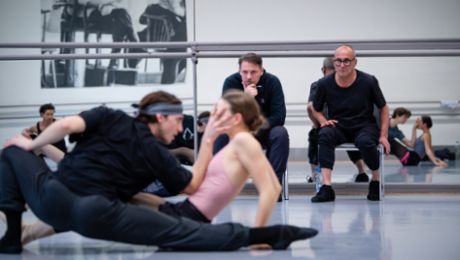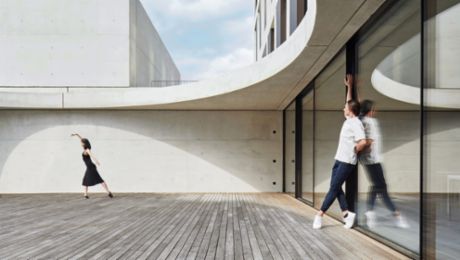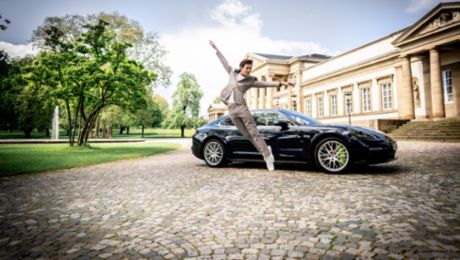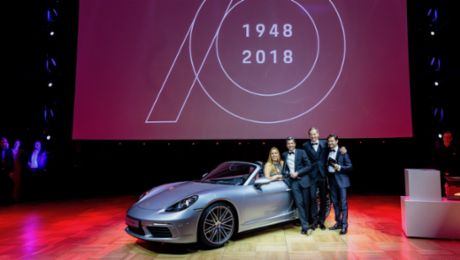The performance combined pieces by the contemporary master choreographers Hans van Manen and Mauro Bigonzetti for the first time. The triple bill will remain available to view via video-on-demand until 5 April 2021. The event, together with an attractive supporting programme, was presented by Porsche.
The sports car manufacturer has been Stuttgart Ballet’s main sponsor since 2012 and plans to step up its commitment in the cultural sector. In this interview, Artistic Director Tamas Detrich and Andreas Haffner, Member of the Executive Board responsible for Human Resources at Porsche, explain why this is so important at this time especially, and how these activities relate to Porsche’s corporate strategy.
Mr Detrich, the “Beethoven-Ballets” live stream was a continuation of Stuttgart Ballet's “StuttgartBallet@Home” programme. How satisfied have you been with the response so far?
Tamas Detrich: Although I think nothing can replace a live performance, the gratitude that our audience has shown for our live streams and video-on-demand performances has been wonderful. When more than 48,000 people tune in to watch our production of The Sleeping Beauty within the space of four days (admittedly over Christmas), then of course that makes me very, very happy. We wanted to send out a message: that we’re still here and that we want to do everything we can for our audience.
To what extent can such a cultural experience be transferred to the virtual world?
Detrich: Dance is notoriously difficult to film. So if there has been anything good to have come out of the pandemic, it’s the fact that the dance world has been forced to devote attention to this issue. The Stuttgart Ballet has also been learning and developing from one live stream to the next. I am very excited by the film “Different Perspective - A close-up view of Mauro Bigonzetti‘s Einssein”. This innovative film project features our dancers equipped with action cameras in order to give the audience a completely new perspective on the performance. The film was made possible with Porsche’s support – which is wonderful. In this way, we remain creative while also tapping into new, digital worlds and opportunities.
Mr Haffner, one focus of Porsche’s sustainability strategy is the promotion of culture. Why?
Andreas Haffner: The two worlds actually have a lot in common. For example, in ballet you see how styles that have developed over centuries are continually being reinvented. There is an openness to new ideas and a drive for change. Porsche also represents this connection between tradition and innovation. Emotion and passion are the driving force behind culture just as they are the driving force of our sports cars from Zuffenhausen. But ultimately it is also an inherent part of our company’s philosophy that we play an active role in society and promote culture on a sustainable basis. We strongly believe that everyone should be able to participate in society – regardless of their educational level or income. That is why we have made it our goal to make culture accessible to a wide audience – for example, with “Ballet in the park” or “Ballet at the Kulturwasen” in Stuttgart, or now with the “Beethoven-Ballets” live stream.
What role does the promotion of culture play in Porsche’s new Strategy 2030?
Haffner: As part of our sustainability strategy, we have undertaken to act as a “partner to society”. The aim of this strategic area within the Strategy 2030 is to assist regions and communities in preserving the environment, ensuring good working and living conditions, and strengthening social cohesion. For us, this goes well beyond donations and charity; we put the empowerment of people at the fore, and the promotion of culture is an integral part of this. Because we firmly believe that free societies and culture are inextricably linked.
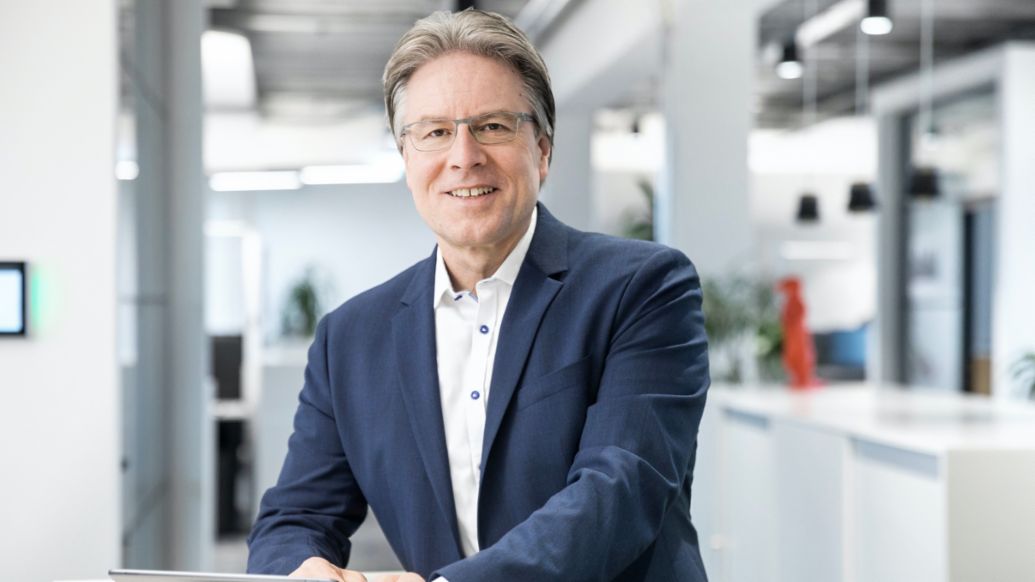
Mr Detrich, to what extent do you think this pandemic will change the world of ballet going forward, also in the medium term?
Detrich: I think the keyword here is: awareness. We have all become aware – both artists and audience – of just how valuable everything is that we regarded as “everyday” up until March 2020: the magic of a ballet performance, with as many as 50 dancers on the stage, 65 musicians in the orchestra, and 1,400 spectators in the audience. The 100 performances and six premieres per season. Now we would be happy to be able to put on one live performance in front of 300 people. I think we will all feel a deep sense of gratitude when we meet again – dancers and audience alike. It will take a while for us to reach a “new normal”, but one thing I am sure of is that our audience will return and we will dance for them with twice as much passion and dedication.
That sounds very hopeful. Mr Haffner, what’s next on Porsche’s agenda in terms of cultural promotion?
Haffner: We will continue our joint activities with Stuttgart Ballet and Gewandhausorchester Leipzig. In Stuttgart, we have been the main sponsor since 2012, and in Leipzig we recently extended our agreement as a “Premium Partner”. Together we will also continue to make events accessible to wider society in the future – whether virtually or hopefully also soon in person again. In addition, we remain passionate about supporting young talent. We have provided substantial support for the new building for the John Cranko School, one of the world's most renowned ballet schools, and are taking part in discussions in many areas about further measures to promote young talent.
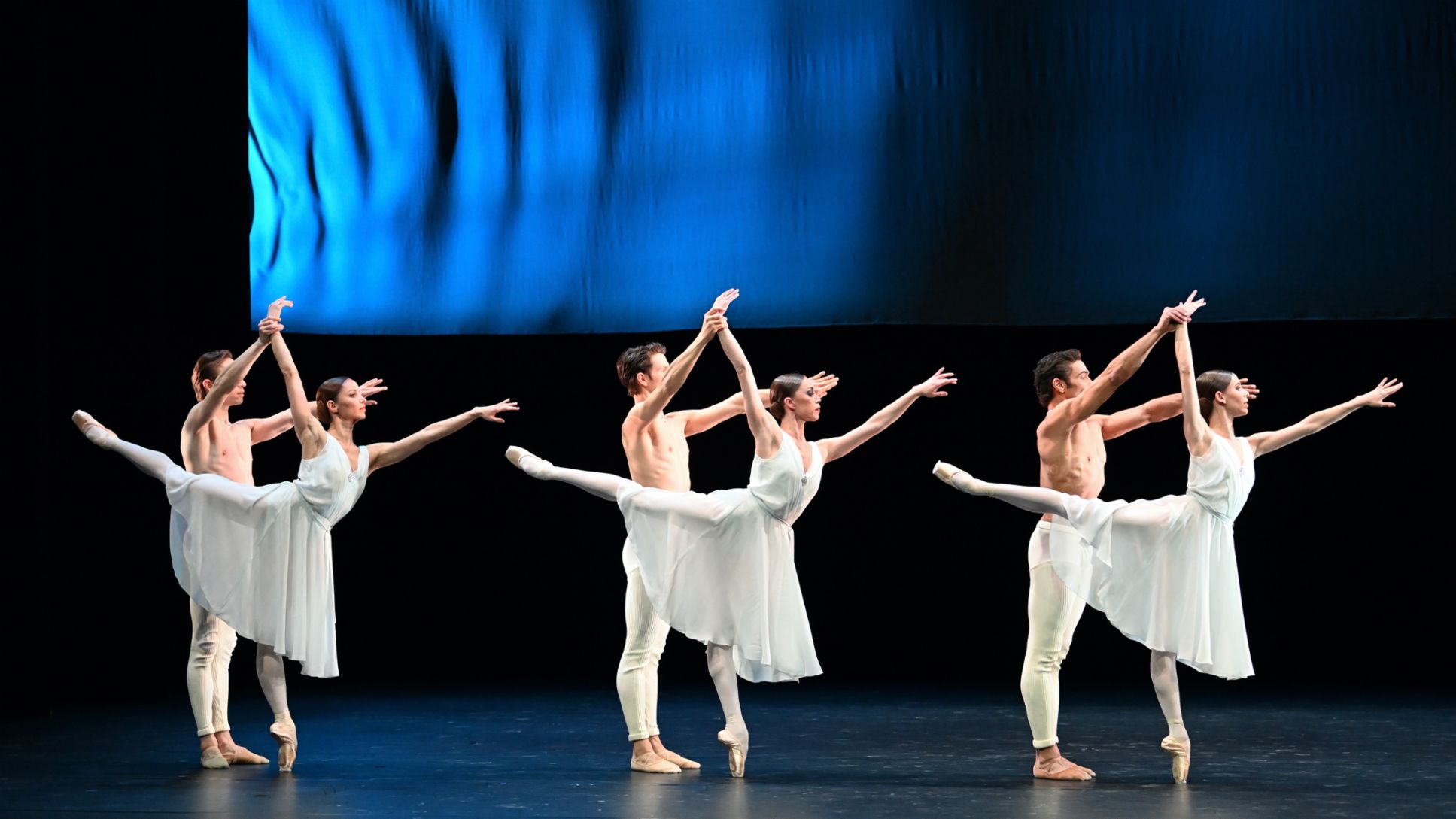
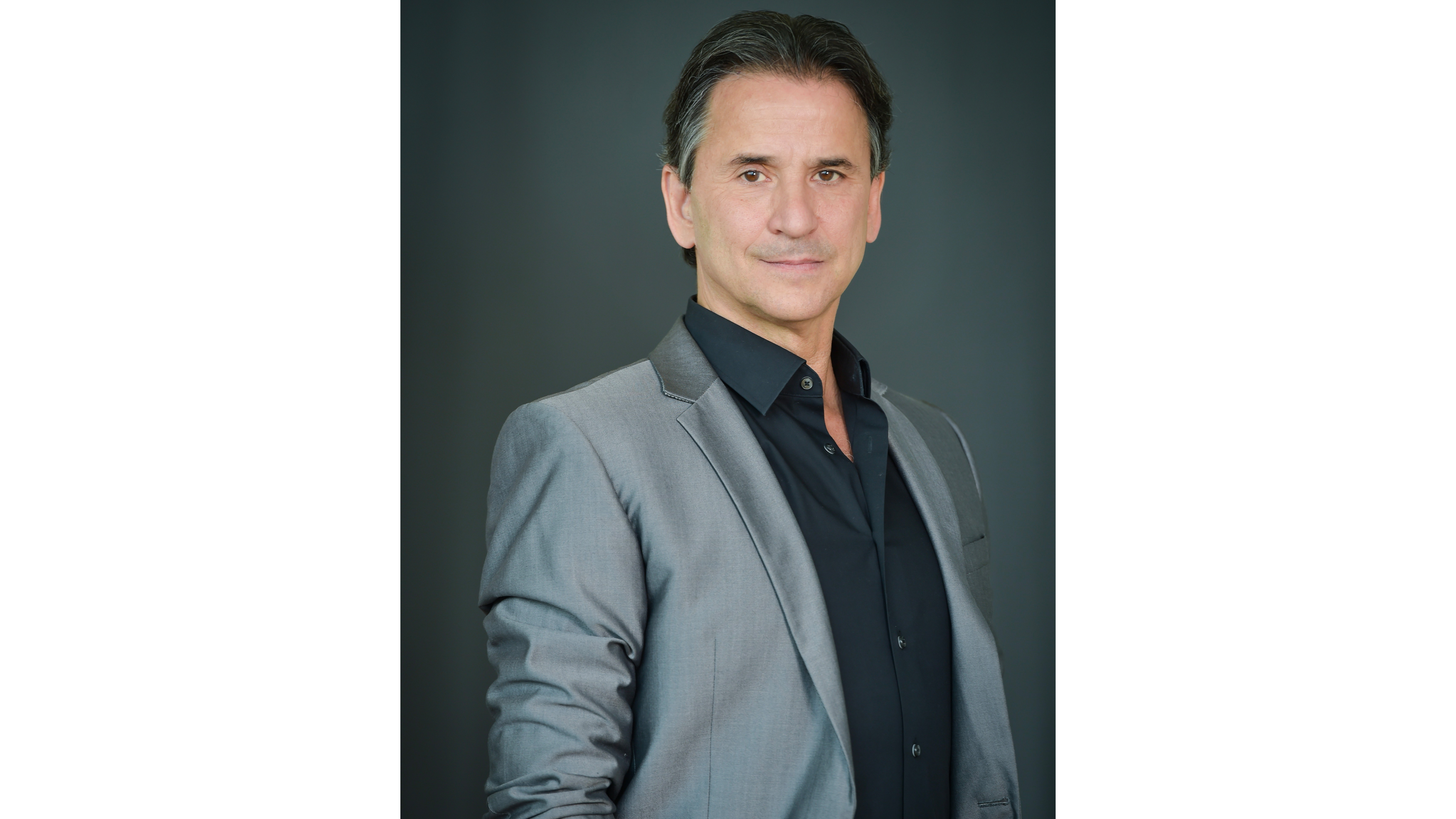%20Roman%20Novitzky.jpg)

